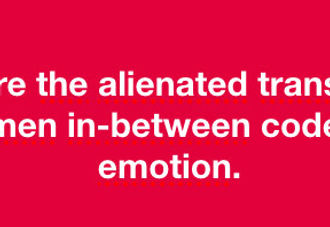Isabel Costa
Distant Movements (2019)
In Distant Movements we close our eyes. Thus we immerse ourselves in the imagination of our own space and we can not control how we appear on the screen. We are guided through this space, at the same time real, virtual and imaginary, by a voice. It is this voice that creates a shared mental space.
In this shared space our bodies dance and interpret, each in their own way, the words coming in two different languages. It is clear that in the immediacy of our interpretations, our smallest differences occur, revealing an unsuspected value. So many bodies, so many dances: in-reproducible, inimitable. And each one gets in tune with the other and dances with the other, imagining the dance of the other in his own inner space.
Ours Lingages (2017)
Ours Lingages = a script – online poetry, language learning tools and collective writing + code + voice + dance + text + singing and a blindfold – unrehearsed.
The internet is my language mother. I speak with a voice that’s not my own, I speak in other voices, not my voice. We are all e-strangers, all nomads that use globish bastard languages. We are the alienated translated (wo)men in-between code and emotion, in-between our wish to be visible and our longing for intimacy. L’entre-deux = void. Can’t we be “with” instead?
Translation is a joy as long as you can accept the imperfections of the result, are willing to learn, to spend time, to pay attention, to take risks and to accept your own incompleteness and glitches. Translation is always failing, faulty, it’s a source for confusion … and discovery. It opens a third language; another in-between, and then a fourth and … Better take nothing for granted and play with it. Be the one not looking at what something is, but at what something can do.
You have to accept (a FEW times). A few times. New language. Let’s try to be “with”.
Mosteiro de São Bento da Vitória, Porto, during the Electronic Literature Organisation conference: ELO 2017

